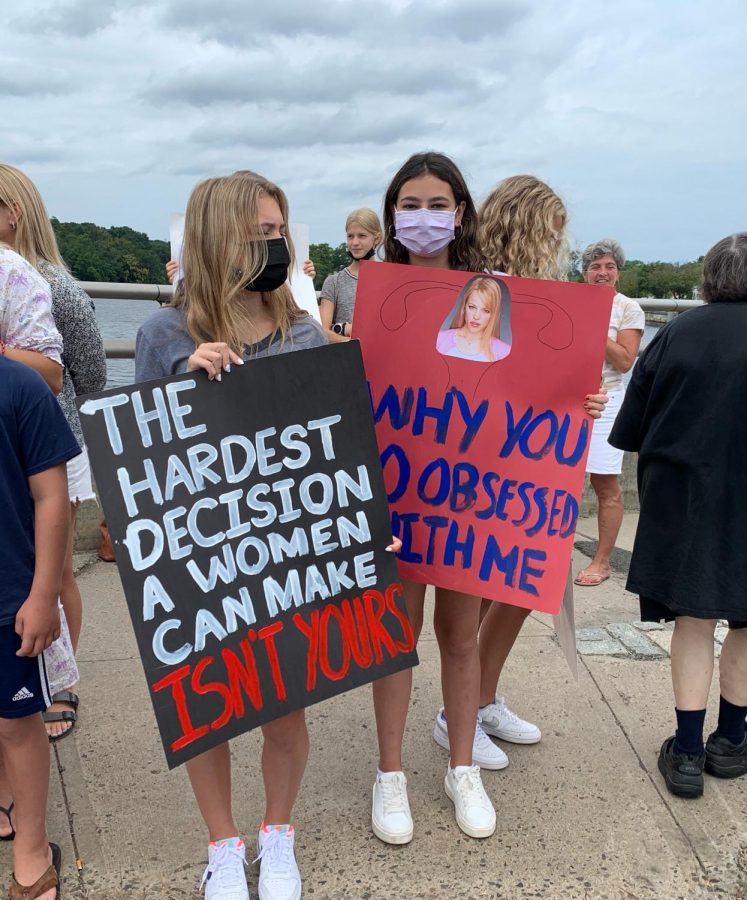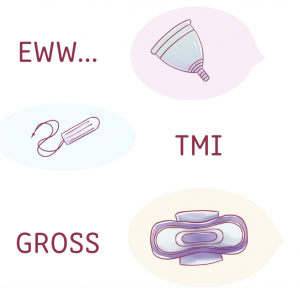Texas abortion law despicable, but provides unexpected hope
Photo contributed by Andrea Moore
Protesters in Westport gathered downtown on Sept. 5 in opposition to Texas’ restrictive abortion law. The event was organized by community members and leaders, and gained the attention of dozens of Westporters.
Texas’ oppressive abortion law that imposes bans on termination past a six week gestational age leaves little hope for people enslaved to both their reproductive cycle and discompassionate legislators. Stipulations within the law include not only prohibiting abortions past six weeks—often before people know they’re pregnant—without exceptions for rape or incest, but also allowing citizens to sue abortion facilitators and providing $10,000 for reporting abortions.
This law is a slap in the face: for women in the Lone Star State who sat on the edge of their seats as they awaited the Supreme Court’s decision; for pregnant people quivering in fear that they waited too long to assess their options; for others cringing from a distance, consumed with anxiety that the legislation could infiltrate other states.
The sexist sentiments behind the pro-life movement have long been masked by benevolent language; while anti-choice is a more accurate description, supporters rallied in their holier-than-thou complexes of valuing life. Insistence on protecting innocent unborn children was once a compelling argument; however, Texas’ new law leaves no doubt that legislators who oppose abortion aren’t pro-life, but anti-women.
The caveats within Texas’ law are abhorrent. How can people claim to value life while perpetrating rape culture by rewarding reports of victims’ abortions? How can people assert that children deserve protection while punishing minors for confiding in a trusted adult about the possibility of termination? How can people proselytize the immorality of abortion while ignoring the illegal ways in which unwanted pregnancies emerge?
Fortunately, people on all sides of the pro-life vs. pro-choice spectrum are starting to ask these questions. A Women’s March is being coordinated in all 50 states in opposition to the law and in solidarity with those it most intimately affects. Westport organized its own protest, where dozens of community members gathered to support those troubled by the legislation. Pro-life politicians expressed their grievances over Texas’ law on-air, defending their positions but alluding to the destructive nature of the bill.
Reproductive health is a right that some Americans view as, at best, a privilege and, at worst, a write-off. While the treatment of pregnant people as outlined in Texas’ law is inexcusable, its nature outs the pro-life movement as mysogynistic and dangerous. With the true intentions of the pro-life movement exposed, people once ambivalent to abortion are motivated to stand in defense of Roe v. Wade and other reproductive rights.

Web Managing Editor Anastasia Thumser ’22 grew up as a writer, though the road wasn't easy.
“I kind of got off to a rough start in the class. It...





















































